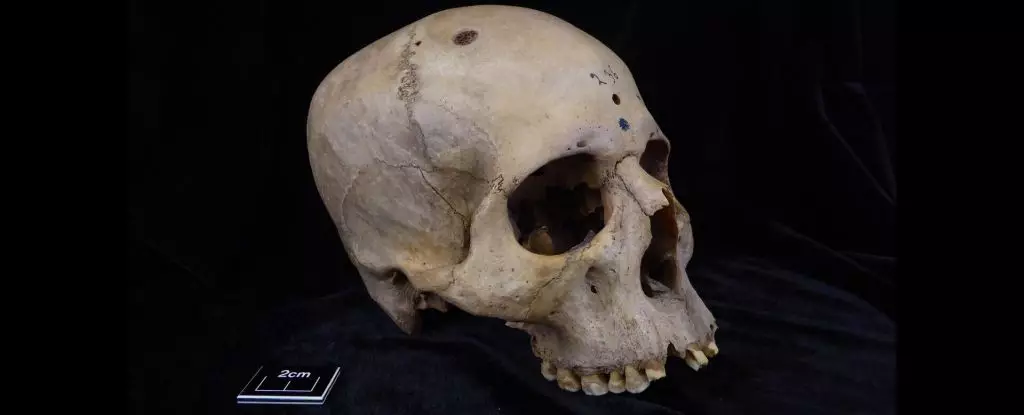

The ancient Egyptians were known for their advanced skills and knowledge in the field of medicine, a fact that still astounds us today. They were pioneers in many medical practices and their techniques have been studied and learned from for thousands of years. However, despite their sophistication, there were some ailments that even the ancient Egyptians struggled to treat. One such challenge was cancer, a disease that remains a significant issue even in modern times.
Recent evidence from two skulls found in the University of Cambridge’s Duckworth Collection sheds new light on how the ancient Egyptians attempted to deal with cancer over 4,000 years ago. The skulls, belonging to a male and a female individual, show signs of cancer and other injuries, indicating attempts at treatment. Paleopathologist Edgard Camarós from the University of Santiago de Compostela in Spain describes this finding as unique evidence of ancient Egyptian medical practices related to cancer.
The male skull, dating back to between 2687 and 2345 BCE, belonged to an individual who died in his early 30s. Upon examination, the skull displayed around 30 lesions consistent with metastasized carcinoma. Interestingly, some of these lesions showed cut marks, suggesting surgical attempts to remove cancerous tissue. The lack of healing in these cut marks indicates that they were made around the time of death, possibly as a last-resort effort to combat the cancer. Orthopedic surgeon Albert Isidro notes that this finding demonstrates the experimental nature of ancient Egyptian medical interventions for cancer.
In contrast, the female skull belonged to an individual who lived between 663 and 343 BCE and was over 50 years old when she died. Her skull exhibited a large cancerous lesion, as well as healed sharp-force and blunt-force trauma injuries. The healed nature of these injuries suggests that she may have received some form of treatment for her wounds. The combination of these findings raises questions about the role of women in warfare activities during antiquity.
While both skulls show evidence of attempted treatment for cancer, the advanced state of the disease in both cases suggests a link to mortality. The lack of clear signs of successful treatment on the female skull highlights the challenges that the ancient Egyptians faced in curing cancer. Archaeologist Tatiana Tondini emphasizes the importance of understanding how ancient societies interacted with diseases like cancer and the prevalence of such ailments in the past.
The discoveries of these two skulls offer valuable insights into the ancient Egyptian approaches to treating cancer. Despite their advanced medical knowledge, the ancient Egyptians encountered difficulties in finding a cure for this deadly disease. Studying these ancient cases helps us appreciate the historical significance of cancer and the efforts made by our ancestors to combat it.
In an era where environmental consciousness is paramount, the maritime industry has long been scrutinized…
Radionuclides, often relegated to discussions surrounding nuclear energy and radioactive waste, have far-ranging implications for…
Landslides have long been a concern in areas like California, where the unique geography and…
In the vastness of our galaxy, among countless stars, lies a fascinating phenomenon known as…
This week marks a monumental milestone in astronomy as the Hubble Space Telescope celebrates its…
The enigma of dark matter has captivated the scientific community for decades. Although it constitutes…
This website uses cookies.